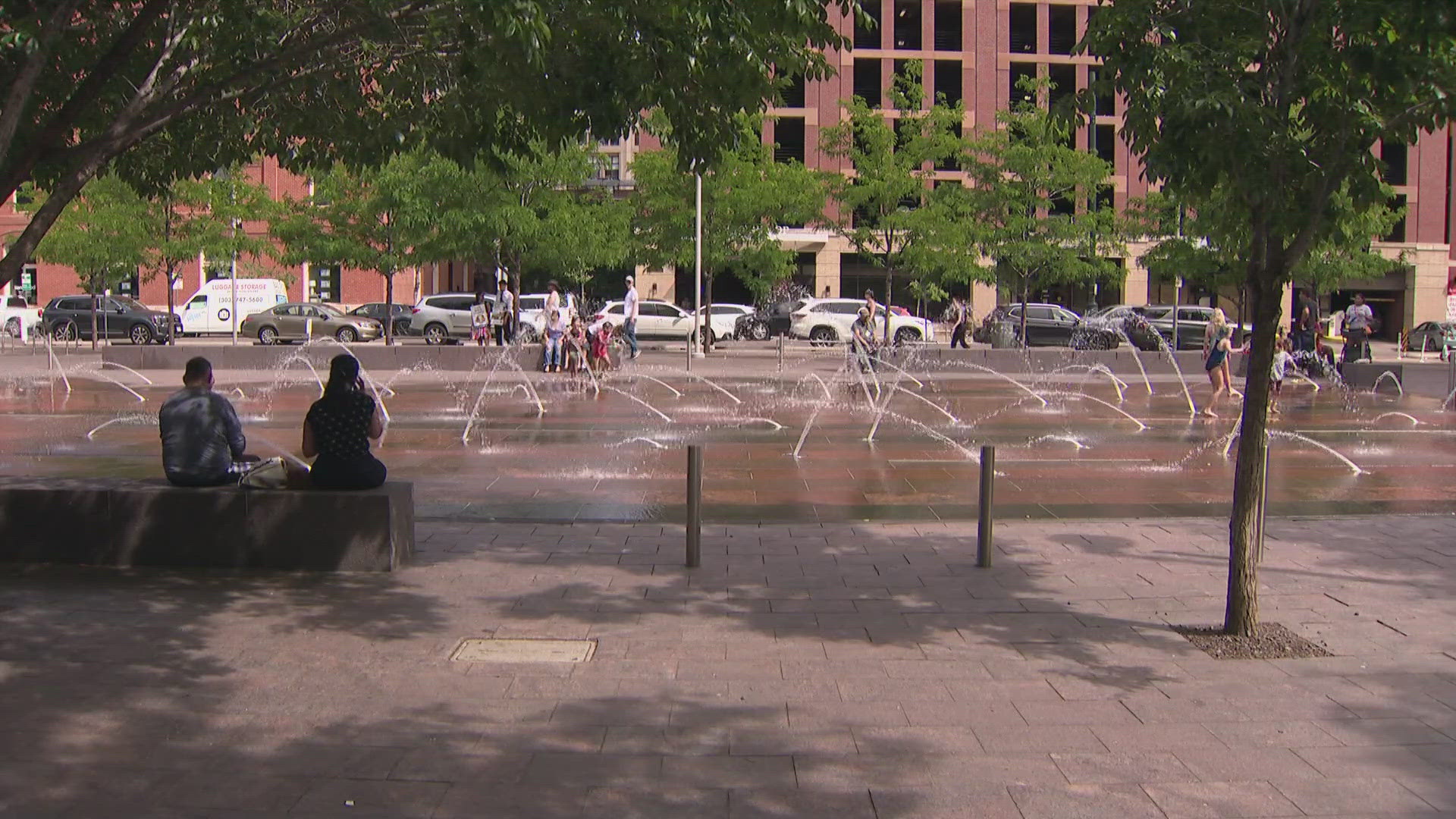DENVER — The City and County of Denver is recognizing Global Heat Action Day by raising awareness about extreme heat.
According to Climate Central, Denver is experiencing an average of 19 more days of above-average heat annually than the city did 50 years ago. The average summer temperature has increased 3 degrees since 1970 and is expected to continue rising.
Global Heat Action Day also coincides with the start of temperatures in the upper 80s in Denver. Later this week, the city could see its first 90-degree day of the year.
Some Coloradans 9NEWS spoke to Sunday described this weekend's temperatures as already "too hot" to be comfortable. The city said this underscores the need to take additional steps to mitigate the impacts of climate change.
"The city of Denver is experiencing many more days of extreme heat every year, due to climate change, so the city is addressing these threats in various ways. We are trying to keep people cool and safe in the short term, and we are also really trying to work to reduce pollution and tackle climate change to protect our city in the long run," Denver climate office spokesperson Emily Gedeon said.
The city's strategy includes using Denver's heat vulnerability index to identify which neighborhoods are currently suffering the worst effects of extreme heat. The city will then focus to distribute resources within those areas, which include the Globeville, Villa Park and Valverde neighborhoods.
Gedeon said the city is working with neighborhood groups to plant trees and expand the urban tree canopy across areas with the lowest tree cover. The city is also partnering with nonprofits and community groups to distribute air conditioning units and air purifiers to residents who need the most urgent relief from the heat.
Right now, the city is also offering home energy rebates for homeowners who would like to install heat pumps, all-electric appliances that can both cool and heat homes.
"So if you don't have AC in your house, you've been thinking about replacing your furnace, we have a lot of money available for you to be able to switch to all-electric and get access to heating and cooling. That is one of the major ways we are trying to reduce the amount of pollution we emit in Denver and keep people cool," Gedeon said.
As the temperatures rise this week and later into the summer, the city also suggests these tips to stay cool:
- Stay inside in air-conditioned buildings as much as possible. Air conditioning is the number one way to protect yourself against heat-related illness. If your home is not air-conditioned, visit one of Denver’s cooling stations.
- Drink more water than usual and don’t wait until you’re thirsty to drink.
- Fans will not prevent heat-related illness in extreme heat; instead, take cool showers or baths to cool down.
- Don’t use the stove or oven to cook—it will make you and your house hotter.
- Don’t drink alcohol or beverages that contain caffeine.
- Limit your outdoor activity, especially during the middle of the day when the sun is hottest.
- During periods of extreme heat, check on friends and neighbors to be sure they are safe, and remember to never leave children unattended in a hot car.
- Leave pets at home and never leave an animal alone in a vehicle, even with the windows down.
- Keep walks with pets during peak daytime hours to a minimum.
- Be mindful of hot pavement that can burn your pet’s feet. If you can’t hold your bare hand on pavement for 10 seconds, then it’s too hot for your dog to walk on.
- If you see a dog in a hot car, immediately call the Denver Animal Protection Dispatch number, 720-913-2080.
SUGGESTED VIDEOS: Colorado Weather

